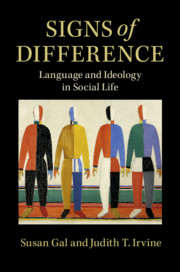Book contents
9 - Library to Field: Ideologies in Nineteenth-Century Linguistic Research
from Part IV - Pasts
Published online by Cambridge University Press: 17 June 2019
Summary
This chapter uses the book’s semiotic approach to ideology and scaling to analyze the work of linguistic scholars in the nineteenth century who recognized comparison across grammatical systems as their great scientific achievement. Their ambition was an impossible “view from nowhere,” which would encompass every kind of linguistic form. Accordingly, they attempted to scale up their philological methods, derived from the study of ancient texts, to include the unwritten languages of denigrated populations in Asia, Africa, and rural Europe. But unwritten practices did not yield to the methodologies of linguists and continue today to challenge linguistic methods. Linguists who described unwritten languages, either as missionaries (in Africa and Asia) or while searching for national pasts (in Asia), were marginalized in the world of German philology of the nineteenth century. They struggled for inclusion into academic linguistics and were finally accepted because the center was attempting to universalize (upscale) its purview. The chapter closely examines African linguistics as well as Finno-Ugric linguistics of the late nineteenth century.
- Type
- Chapter
- Information
- Signs of DifferenceLanguage and Ideology in Social Life, pp. 245 - 269Publisher: Cambridge University PressPrint publication year: 2019

